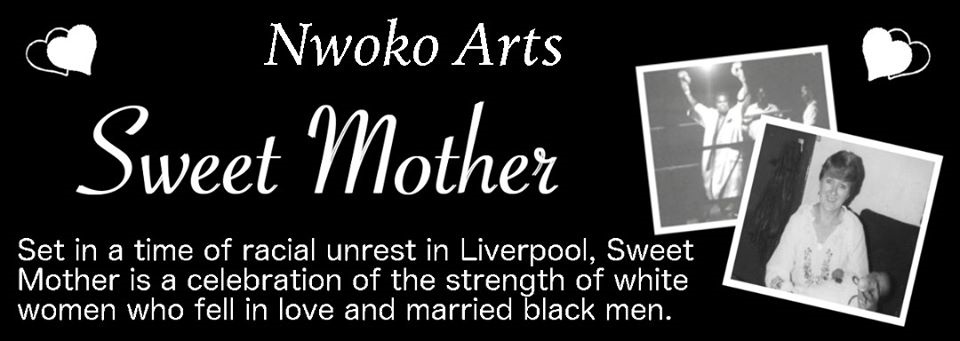Poignant and authentic stories of strong, resilient white women who fell in love and married black men at a time of racial unrest.
Sweet Mother is the fruit of a five-year oral history project and previous scratch performance Married in Black. It takes the real-life spoken histories of women living through the 1950s to the 1980s. These were pioneering white women who challenged stigma and racism to have relationships with black men. Often leaving behind their overwhelmingly white communities to move to Toxteth.
The performance was created and directed by Maria Paul (Nwoko Arts) and follows hours of interviews with women from the local community who shared their experiences of growing up, falling in love and raising families in Toxteth.
These experiences are faithfully voiced by three characters – Vera (Margaret Connell), Josie (Amanda George-Higgins) and Joan (Lisa McMahon).
The performance is part-monologue and part-conversation as each of the characters take turn to tell their story. The women are comfortable in the retelling of their stories even though some events are painful and heartrending. Often it is the rejection of the women by their own families (and mothers) which is most distressing, there is a harrowing recollection of one of the women who, as a fifteen year old girl, has her head shaved by her mother, and her mother’s friend, as punishment for talking to a boy of mixed race.
Other stories trace the music and culture of the times, there is talk of dances at the Rialto and the Grafton and visits to Burtonwood Air Base with American GIs. There are stories about surviving on no money, of tricking the gas man and unrest as black and mixed-race families move to new housing development.
The accounts move from post-war memories through to the Toxteth riots of 1981 with the despicable role of the then Chief Constable, Ken Oxford, particularly highlighted. The militancy and organisation of the community is portrayed by an evocative demonstration scene which uses sound and the movement of the actors to capture the fighting mood of the time. The stories tell of the rejection of the women by their own families and community but also the bonding and connection into a new community.
There are audio clips, musical interludes and video interviews with some of the women (many of whom are now in their seventies) on whom these stories are based which provide authentic, first-hand accounts. There is easy interplay between the actors who, in conversational tomes, encourage and validate each other’s memories and experiences. There are even some moments when an actor will feign to remember a name only to have it supplied by an audience member during the pause, such is the audience engagement. In fact, many audience members audibly agree, remember or confirm aspects of the stories.
The stage is simple and effective with a combination of protest placards and carnival costumes. The actors do well in not trying to re-enact the stories but in capturing the strength, spirit and resilience of the women, although there were occasions when the actors slipped into cliched Scouse.
The performance stands as a piece of social history and there was a Question and Answer session with the Director and cast following the performance with talk about taking the show into schools and even developing a Part Two.
These are superbly evocative stories which need telling and understanding.
Reviewer: Bob Towers
Reviewed: 13th March 2020
North West End UK Rating: ★★★★

